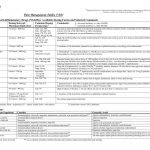
Contents
What Is a Good Heart Rate for My Age Chart?
A good heart rate varies depending on age and physical activity.
Heart rate indicates the speed at which your heart beats and is a crucial measure of overall health. Whether you’re at the doctor’s office or dealing with a health issue, heart rate is always part of the assessment.
In addition to your doctor’s assessment, you can measure your own heart rate. You can find your pulse using your middle and index fingers:
- Wrist
- Inner side of your elbow
- Base of the toe
- Side of your neck
Your wrist is the most commonly used spot to find your pulse. Once you locate it, gently press the pulse point for 60 seconds and count the beats. This will give you your heart rate in beats per minute.
A good heart rate varies from person to person depending on age and physical activity.
Below is a chart of normal heart rates by age:
| Newborn | 100-160 |
| 0-5 months | 90-150 |
| 6-12 months | 80-140 |
| 1-3 years | 80-130 |
| 3-5 years | 80-120 |
| 6-10 years | 70-110 |
| 11-14 years | 60-105 |
| 15 years or older | 60-100 |
However, a heart rate below 60 beats per minute doesn’t necessarily mean something is wrong. Athletes and those who engage in moderate to intense physical activity often have lower heart rates, between 40 and 60 beats per minute.
What should my heart rate be?
According to the American Heart Association (AHA):
- Adults should have a resting heart rate between 60 and 100 beats per minute.
- For individuals aged 6 to 15, the heart rate range is 70 to 100 beats per minute.
Is 72 bpm a good heart rate?
Yes, 72 beats per minute is considered a good heart rate. According to the American Heart Association, a heart rate below 80 beats per minute reduces the risk of heart attack.
A normal resting heart rate ranges from 60 to 100 beats per minute. However, a lower heart rate within this range is healthier.
When should I worry about my heart rate?
Before becoming concerned about heart rate, it’s important to understand the factors that can increase or decrease heart rate.
Your heart rate may increase:
- After consuming coffee or smoking
- In moments of fear, anxiety, or stress
- In hot and humid weather
- If you are obese
- When taking certain medications, such as decongestants
- While engaging in frequent binge drinking
Health conditions associated with an increased heart rate that can be improved with treatment:
- Hyperthyroidism
- Anemia
Conditions like supraventricular tachycardia (SVT) can cause a sudden increase in resting heart rate, requiring immediate medical attention. This condition can lead to sudden death.
Heavy and frequent alcohol consumption can lead to a fast and irregular heart rate (atrial fibrillation), also requiring immediate medical attention.
A persistent high heart rate may indicate weakened heart muscle, which requires it to work harder to pump the same amount of blood.
A lower resting heart rate can result from:
- Regular exercise
- Low levels of thyroid hormones (hypothyroidism)
Certain medications, such as beta-blockers used to treat hypertension and anxiety, can also lower heart rate.
If you notice your heart beating at an irregular rhythm frequently, it’s important to see your doctor as this could be a serious condition called arrhythmia.
QUESTION
What is considered an unhealthy heart rate?
If your heart rate is consistently above 100 beats per minute and you experience chest pain, shortness of breath, or dizziness, you should go to the emergency room.
Tachycardia, or a fast heart rate, occurs when your resting heart rate exceeds the normal range of 60-100 beats per minute.
If your heart rate is consistently above 100 beats per minute and you experience the following symptoms, you should go to the emergency room:
- Severe, unexpected chest pain followed by shortness of breath, sweating, nausea, or weakness
- Chest pain resembling angina (radiating to the left shoulder, back, or left little finger) lasting longer than 15 minutes and not relieved by rest and medication (nitroglycerin)
- Persistent shortness of breath
- Sudden weakness or paralysis in your arms or legs
- Sudden onset of a severe headache
- Dizziness
- Fainting with loss of consciousness
What are the three types and signs of high heart rate?
Atrial or supraventricular tachycardia (SVT)
SVT is a fast heart rate originating in the upper chambers of the heart (atria), disrupting electrical signals from the sinoatrial node, the heart’s natural pacemaker. This irregular, elevated heart rate leads to incomplete filling of heart chambers between contractions and compromised blood flow to the body.
- Signs of SVT include:
- Fluttering in the chest
- Bounding pulse
- Chest pressure, tightness, or pain (angina)
- Shortness of breath
- Fatigue
- Fainting
- Light-headedness or dizziness
- Rapid heartbeat or palpitations
- Factors that increase risk:
- Age (children at higher risk)
- Sex (women at higher risk)
- Anxiety
- Fatigue
- Alcohol, caffeine, and tobacco use
- Congenital heart disease
- Treatments:
- Carotid sinus massage (gentle pressure applied to the neck where the carotid artery splits)
- Valsalva maneuver (holding nostrils closed while blowing air through the nose)
- Sedation
- Rest
- Avoiding alcohol, caffeine, and tobacco
Sinus tachycardia
Sinus tachycardia is a normal increase in heart rate due to various factors.
Causes of sinus tachycardia include:
- Anxiety
- Fright
- Emotional distress
- Fever
- Intense exercise
- Anemia
- Severe bleeding
- Hyperthyroidism
- Heart muscle damage from heart attacks
Addressing the underlying cause is the primary treatment for sinus tachycardia.
Ventricular tachycardia
Ventricular tachycardia is a fast heart rate originating in the lower chambers of the heart (ventricles).
- Causes of ventricular tachycardia include:
- Reduced coronary artery blood flow, reducing oxygen supply to the heart tissue
- Cardiomyopathy (disease of heart muscle) distorting heart structure
- Side effects of medications, such as thyroid hormones
- Illegal drug use, such as cocaine and amphetamines
- Sarcoidosis (inflammatory disease affecting skin or body tissues)
- Signs and symptoms:
- Nausea
- Light-headedness
- Fainting
- Dizziness
- Palpitations
- Shortness of breath
- Cardiac arrest (in severe cases)
- Treatment options:
- Medication
- Surgery
- Radiofrequency ablation
- Electrical defibrillation


